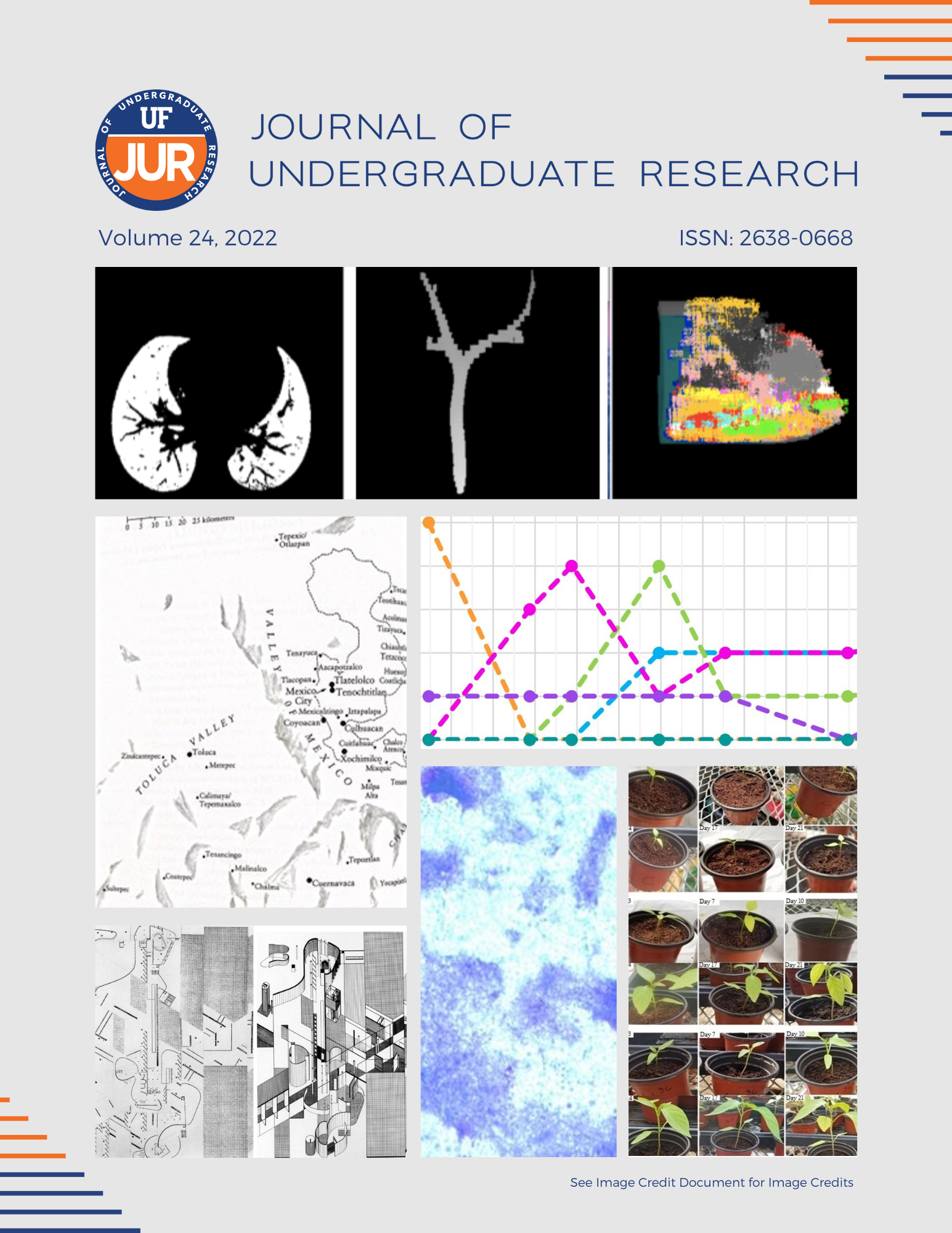Impacts of the COVID-19 Pandemic on Mental Health of Undergraduate Students
DOI:
https://doi.org/10.32473/ufjur.24.130410Keywords:
COVID-19, undergraduate students, mental health, online learningAbstract
Previous studies conducted in the United States during the COVID-19 pandemic have found that undergraduate students experienced considerable levels of anxiety, depression, stress, difficulties transitioning to online learning, worries about academic performance, and difficulties concentrating (Fruehwirth et al., 2021; Hathaway et al., 2021; Lee et al., 2021; Son et al., 2020; X. Wang et al., 2020). However, these studies were primarily conducted during the first wave of the pandemic. To assess ongoing impacts of the COVID-19 pandemic on undergraduate students, students at a state university in the southeastern United States were surveyed to examine associations between mental health symptoms (anxiety, depression, and stress) and class modality (classes online versus at least one in-person class), along with various demographic and academic variables (perceived distractibility and perceived decrease in quality of coursework). The results showed that class modality was not a significant predictor of anxiety, depression, and stress. Perceived distractibility and perceived decrease in quality of coursework were significant predictors of all three outcomes and female gender was a positive predictor of anxiety and stress. Students within this study reported clinically significant levels of anxiety, depression, and stress, indicating the need for further research on the availability of mental health services for students.
Metrics
Downloads
Published
Issue
Section
License
Copyright (c) 2022 Kendall Robinson, Seth Downing, Andrea Guastello

This work is licensed under a Creative Commons Attribution-NonCommercial 4.0 International License.
Some journals stipulate that submitted articles cannot be under consideration for publication or published in another journal. The student-author and mentor have the option of determining which journal the paper will be submitted to first. UF JUR accepts papers that have been published in other journals or might be published in the future. It is the responsibility of the student-author and mentor to determine whether another journal will accept a paper that has been published in UF JUR.

